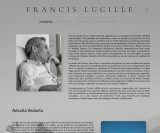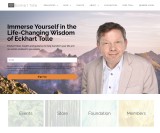
In Buddhism, particularly in the Zen tradition, non-duality is one of the most essential and profound teachings. Zen emphasizes the understanding that "only this exists," a phrase referring to the ultimate reality where all distinctions, separations, and concepts lose their ultimate foundation. According to this view, apparent dualities like subject and object, self and other, inner and outer are merely illusions created by the conditioned mind. Through habitual fragmentation of experience into distinct elements, the human mind loses sight of the fundamental truth: everything is intrinsically connected and indivisible. Thus, transcending this false perception of duality is, for Zen, the path toward direct, unfiltered experience of reality.
The famous quote by Seng Ts’an, the third patriarch of Zen in China, encapsulates this perspective: “From the One Mind emerges duality, but do not become attached even to the One.” This line from his text *Xin Xin Ming* (*Faith in Mind*) shows that Zen aims not only to transcend duality but also to go beyond even the notion of unity. From this perspective, even the concept of the *One* or *One Mind* should be released. If we fixate on the idea of a single ultimate nature or unity, we risk creating a new type of duality and falling into mental attachment, thereby recreating conceptual illusions. Zen warns against any attempt to pin down ultimate reality in words or ideas, as even subtle mental fixations take us further from a living, unrestricted experience of reality.
In this context, Zen practice encourages a radical release of all concepts and attachments, including even the most sublime ideas, such as unity or emptiness. Zen meditations, such as zazen (sitting meditation), cultivate this state of openness and pure presence, where the mind ceases imposing its categories on the world. Practice encourages practitioners to engage with reality without conceptual interference, reaching a state of pure awareness in which neither duality nor even the idea of unity holds sway. This involves not only letting go of attachments to external objects but also transcending internal mental constructs and categories until the mind becomes like a perfectly clear mirror, reflecting each thing without attachment.
For Zen practitioners, the experience of non-duality goes beyond words, concepts, and distinctions. It is not an idea to be understood intellectually but an experience to be directly realized. The realization of non-duality is thus not a mystical fusion with an outside entity or abstraction but an awakening to the mind’s natural state: an undivided awareness, free from all conditioning, that perceives reality as it is, in all its simplicity and authenticity. In this sense, Zen aims not only at understanding non-duality but also at embodying this state of mind in every moment of daily life, revealing that every action, encounter, and breath is an expression of this primordial unity.
In Zen, ultimate non-duality is a way of living in perfect balance, undisturbed by the fluctuations of existence or by the mind’s constant efforts to grasp, analyze, or judge. Non-duality is a living experience, without division, that transcends not only the apparent separations between self and world but also any idea of separation between sacred and mundane, between meditation and everyday life. Zen seeks to make this understanding a lived experience, where each moment becomes a spontaneous expression of this unified reality, free from mental attachment or fixation.
Thus, in Zen, non-duality is far more than a philosophical or spiritual doctrine; it is a way of being—a way of remaining open, flexible, and deeply connected to life as it is, beyond categories and judgments. In accessing this realization, the Zen practitioner discovers a state of inner peace and freedom, perceiving that the true nature of the mind is already one with the All, beyond distinctions and attachments.

















